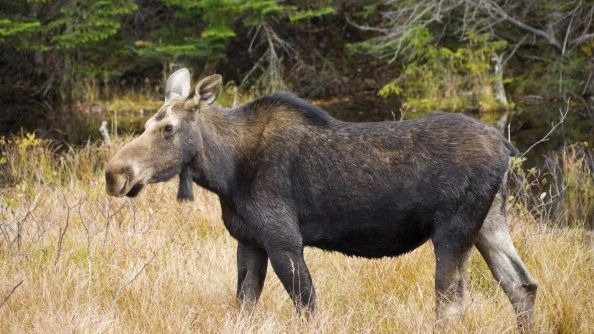CONCORD, N.H. (AP) - New Hampshire has collared 50 moose as part of an ongoing study about the animal's mortality in the state.
The study is to determine if winter ticks are the primary cause of increased moose mortality and decreased productivity, and how weather, forest-cutting, and moose density interact to influence tick numbers on moose.
This is the last year for collaring in New Hampshire, which started its study in 2014 and is expected to end it in 2020.
New Hampshire is working with Maine and Vermont. Maine collared 83 moose this year. Vermont plans to collar 35 moose.
New Hampshire biologist Kristine Rines says in fall 2016, dry conditions killed many winter ticks before they could get on moose, so there was moose population growth. She said tick counts last fall on collared animals were still below pre-drought conditions.
New Hampshire collars 50 moose for study
The study is to determine if winter ticks are the primary cause of increased moose mortality.


